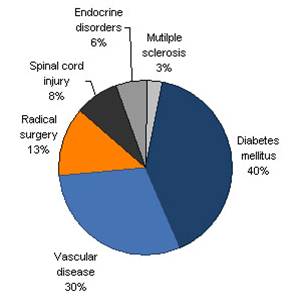|
|
||||||||||||||||||||||||||||||||||||
Disease Conditions
- Abscess
- Acne
- Addiction
- Adenoid Hypertrophy
- Allergic Rhinitis or Hay Fever
- Alopecia Areata
- Alzheimer’s Disease
- Amoebiasis
- Anxiety
- Asthma
- Backache
- Bed-Wetting-Enuresis
- Brain-Tumour
- Cataract
- Cirrhosis of Liver
- Conjunctivitis
- Constipation
- Dengue
- Depression
- Diabetes Mellitus
- Diseases of Prostate
- Eczema
- Epilepsy
- Erectile-Dysfunction
- Gallstones
- Goitre
- Gynaec
- Hepatitis
- Hepatitis-a
- Hepatitis-b
- Hepatitis-e
- Hyperthyroidism
- Hypothyroidism
- IBS - Irritable Bowel Syndrome
- Infertility
- Infertility FAQ
- Male Infertility
- Male Infertility FAQ
- Women Infertility
- Lichen Planus
- Lipoma
- Meningitis
- Menstrual-Disorders
- Migraine
- Molluscum-Contagiosum
- Nasal-Polyps
- Neoplasm
- Nephrotic Syndrome
- Neuralgia
- Osteo Arthritis
- Otitis
- Piles or Hemorrhoids
- Premature-Ejaculation
- Psoriasis
- Rheumatoid Arthritis
- Ringworm
- Schizophrenia
- Sinusitis
- Spondylitis
- Styes
- Tarsal Cyst-Chalazion
- Tonsilitis
- Typhoid
- Urinary-Tract-Infection
- Urticaria
- Vertigo
- Vitiligo
- Warts
Auroh Health Horoscope
Disease A - Z > Erectile Dysfunction > Homeopathic treatment for Erectile Dysfunction

Homeopathy treatment for Erectile Dysfunction
|
||||||||
What is Erectile Dysfunction
Erectile dysfunction (ED), also known as impotence, is the inability to achieve or sustain an erection for satisfactory sexual activity. Erectile dysfunction is different from other conditions that interfere with sexual intercourse, such as lack of sexual desire and problems with ejaculation and orgasm. This article focuses on the evaluation and treatment of erectile dysfunction.
How common is erectile dysfunction?
Erectile disfunction (ED, impotence) varies in severity; some men have a total inability to achieve an erection, others have an inconsistent ability to achieve an erection, and still others can sustain only brief erections. The variations in severity of erectile disfunction make estimating its frequency difficult. Many men also are reluctant to discuss erectile disfunction with their doctors, and thus the condition is under-diagnosed. In the United States, approximately 50 million men suffer from erectile disfunction. The prevalence (number of cases of a disease that are present at a given point in time) of erectile disfunction is age dependent, with the rate of complete erectile disfunction increasing from 5% among men 40 years old to 15% among those 70 years old. As our population continues to grow and age, we can only expect this number to increase. The worldwide prevalence of erectile disfunction was 152 million in 1995 and is expected to increase to 322 million in 2025. Much of this increase will occur in the developing world and reflects the aging of the world's population.
To understand ED, it is essential to understand the normal process of achieving an erection. The anatomy of the penis is worth understanding in this aspect.
Anatomy of penis
The penis contains two chambers full of spongy tissue called the corpora cavernosa. When a man becomes sexually aroused impulses from the brain and local nerves cause muscles in the corpora cavernosa to relax, allowing blood to flow in and fill the spaces within the tissue.
This creates pressure in the corpora cavernosa, making the penis expand. A membrane called the tunica albuginea helps trap the blood in the corpora cavernosa, thereby sustaining erection.
The erection is lost when the muscles contract to stop blood flowing into the penis,and open outflow channels.
 |
Causes
Psychological Causes
Erection problems usually produce a significant psychological and emotional reaction in most men. This is often described as a pattern of anxiety and stress that can further interfere with normal sexual function. This "performance anxiety" needs to be recognized and addressed by your doctor.
For some men, erectile dysfunction develops with age or may be related to depression or another psychological cause, such as widower syndrome.
Certain feelings can interfere with normal sexual function, including feeling nervous about or self-conscious about sex; feeling stressed either at home or at work; or feeling troubled in your current relationship. In these cases, psychological counseling with you and your sexual partner may be successful. One episode of failure, regardless of cause, may propagate further psychological distress leading to further erectile failure.
 |
Physical (Organic) Causes
In determining a physical (or organic) cause, your doctor will first rule out certain conditions, such as high blood pressure, high cholesterol, heart and vascular disease, low male hormone level, prostate cancer, and diabetes, which are associated with erectile disfunction. In addition to these conditions, certain systemic and respiratory diseases are known to result in erectile disfunction:
- Scleroderma (stiffening or hardening of the skin)
- Kidney failure
- Liver cirrhosis
- Hemachromatosis (too much iron in the blood)
- Chronic obstructive pulmonary disease
Often, one can restore sexual health by treating a condition such as high blood pressure with diet and/or exercise or by controlling diabetes or other chronic diseases. Nutritional states, including malnutrition and zinc deficiency, may be associated with erectile disfunction and can also be treated with diet.
Almost any disease can affect erectile function by altering the nervous, vascular, or hormonal systems. Various diseases may produce changes in the smooth muscle tissue of the penis or influence mood and behavior.
- Diseases that affect the nervous system and are commonly associated with erectile dysfunction include:
- Epilepsy
- Stroke
- Multiple sclerosis
- Guillain-Barré syndrome
- Alzheimer disease
- Parkinson disease
- Vascular diseases account for nearly half of all cases of erectile dysfunction in men older than 50 years.
- Vascular disease includes atherosclerosis (fatty deposits on the walls of the arteries, also called hardening of the arteries), a history of heart attacks, peripheral vascular disease (problems with blood circulation), and high blood pressure.
- Prolonged tobacco use (smoking) is considered an important factor for erectile dysfunction because it is associated with poor circulation and its impact on cavernosal function.
- Blood diseases, such as sickle cell anemia and leukemias, are also associated with erectile dysfunction.
- An imbalance in your hormones, such as testosterone, prolactin, or thyroid, can cause erectile dysfunction. The following hormonal (or endocrine) conditions are commonly associated with erectile dysfunction:
- Hyperthyroidism (overactive thyroid gland)
- Hypothyroidism (underactive thyroid gland)
- Hypogonadism (leads to lower testosterone levels)
Surgical Causes
Surgery in the pelvic area may injure the nerves and the arteries near the penis, resulting in erectile disfunction. Also, surgical procedures on the brain and the spinal cord may cause erectile disfunction.
Traumatic Causes
Trauma or injury to the penis and/or the pelvic blood vessels and nerves is another potential factor in the development of erectile disfunction.
Erectile Dysfunction: Preventing It
For people who are at risk of developing ED, taking active steps to prevent its occurrence will not only help you maintain erectile function, but also help you lead a healthier life overall. Some steps you can take to prevent ED include:
- Stop smoking.
- Exercise regularly.
- Maintain a healthy weight.
- Review your medications with your doctor and ask about possible substitutions for those that may cause ED (never stop or change a medication without first talking to your doctor).
- Take prescribed medications as directed.
- Avoid excessive use of alcohol (more than two drinks a day).
- Avoid the use of illegal drugs.
- If you have a chronic illness such as diabetes or kidney disease, follow your doctor's guidelines to keep these conditions in control.
Clinical Tests Used to Diagnose ED
There are no tests per se which diagnose erectile disfunction. Many laboratory investigations are conducted to primarily rule out conditions like diabetes, arterial diseases [disorders of blood vessels supplying the heart (Coronary Aretery Disease), increased lipid(fats) in bloodstream, disorders of peripheral blood vessels etc.]
Yet, other tests are performed to measure the severity of erectile disfunction. These tests also provide an insight to the possible cauuse of ED. Some of these tests have been outlined:
- Duplex ultrasound: A chemical which induces an erection (prostaglandin) is injected in the penis. Once an erection is achieved the ultrasound is used to study the degree of dilatation of the penis as well as to measure the blood pressure within the organ. This test identifies any structural or functional inadequacy within the penis.
- Penile nerve function: the physician squeezes the head (glans) of the penis. This generally causes simultaneous contraction of the musclea of the anus. The time period between the stimulus and contraction is a good indicator of the activity of the nerves supplyin the penis. Certain conditions like diabetes, and many nerve diseases causing ED can be the cause of an abnormal penile nerve function.
- Nocturnal penile tumescence (NPT): Commonly a man can have five to six erections in the night during sleep (REM phase). Thus, ther absence indicates trouble with the blood supply, the nerve functions or with both. This study concentrates on studing the rigidity of the penis, by recording the circumferance. However, this test can often give ambiguous results since, with some men, it is normal to not have as many erections.
- Penile Biothesiometry: This test uses electromagnetic vibration to evaluate sensitivity and nerve function in the glans and shaft of the penis. A decreased perception of vibration may indicate nerve damage in the pelvic area, which can lead to impotence.
- Dynamic Infusion Cavernosometry: (Abbreviated DICC),it gives a measurement of the vascular pressure in the corpus cavernosum during an erection. Fluid is pumped into the penis at a known rate and pressure.. To do this test prostaglandin E-1, which causes dilatation of the blood vessels, is injected to measure the rate of infusion required to get a rigid erection and to help find how severe the venous leak is.
Other similar tests one may hear of are:
- Corpus cavernosometry
- Digital Subtraction Angiography
- Magnetic resonance angiography (MRA)
Treatment of Erectile dysfunction
Conventional treatment
Due to the sensitive nature of this condition, the conventional modes of treatment give a lot of emphasis to
- Psychotherapy
- Daily exercises; these increase blood flow to all parts of the body, increase levels of male hormones, increases levels of certain neurohormones which are mood elevators.
When psychotherapy fails to bolster the person's self-image interventional modes are applied.
- Drugs [oral drugs, penile suppositories, ointments, injectable, hormone treatments (rare) etc.]
- Vacuum devices - these work by drawing blood into the penis. It must be used just before intercourse.
- Surgery - as a last measure when all other methods fail to better ED. Prosthetic implants (artificial rods) are inserted into the penis and allowed to remain there. However, these are very expensive and also irreversible.
All treatments aim at helping the individual achieve an erection and maintaining it long enough to perform intercourse. However, no treatment can provide a permanent cure for this condition.
Auroh Homeopathic Treatment for Erectile Dysfunction
homeopathy can provide significant relief to patients suffering from male sexual disfunction. The medicines target the underlying cause of the disfunction and provide effective relief from the same. At Auroh we have been treating patients with erectile disfunction, premature ejaculation and other male sexual disfunctions for years now and have had good response in most cases.
homeopathy works especially well in those cases where the cause of sexual dysfunction is psychological such as depression, stress or anxiety of performance. In cases where nerve damage (due to surgical causes) has resulted in erectile dysfunction (impotence) or ejaculation problems, homeopathy can help to improve the nerve functions over a period of time. Dysfunction resulting from surgical causes (such as Peyronie's disease) may not respond too well to treatment. As far as drug-induced causes are concerned, the physician may suggest alternative medications that may not have an adverse effect on the person's sexual functions. Lastly, constitutional homeopathic treatment can also help in tackling systemic causes of sexual dysfunction such as obesity, diabetes, high blood pressure, hormonal problems, etc.
Conventional treatment of erectile dysfunction includes drugs like Sildenafil Citrate (famous by the brand name Viagra), Vacuum Constriction Device, Penile Injection Therapy and surgery. Too much attention has been drawn to Viagra by the media notwithstanding the potentially dangerous side-effects of this drug. Viagra enables erection (in the presence of sexual stimulation) within an hour of administration but can lead to some serious side-effects such as impaired vision, hypotension, stroke, increased intraocular pressure, mental confusion, dizziness, headaches and sudden hearing loss. It can be very dangerous especially for men who are suffering from cardiovascular diseases. The conventional medication for premature ejaculation such as selective serotonin reuptake inhibitors (SSRIs), desensitizing creams, etc. also tend to provide only temporary relief but not lasting solution.
homeopathy, on the other hand, effectively deals with the root cause of the disorder and provides lasting solutions. In addition, certain changes in the lifestyle can go a step further and relieve the patient of his problems successfully without opting for any make-shift treatment. It is strongly suggested that patients suffering from erectile dysfunction, premature ejaculation or other sexual dysfunctions seek homeopathy early on to experience the benefits of this science to the fullest.
homeopathy is strongly recommended for Erectile Dysfunction
| talk to our doctors right now |  |
|
| consult our experts | ||
 |
leave your number we will call you back |
|
| start auroh health treatment |
Your doctor is just a click away |
Treatment |










